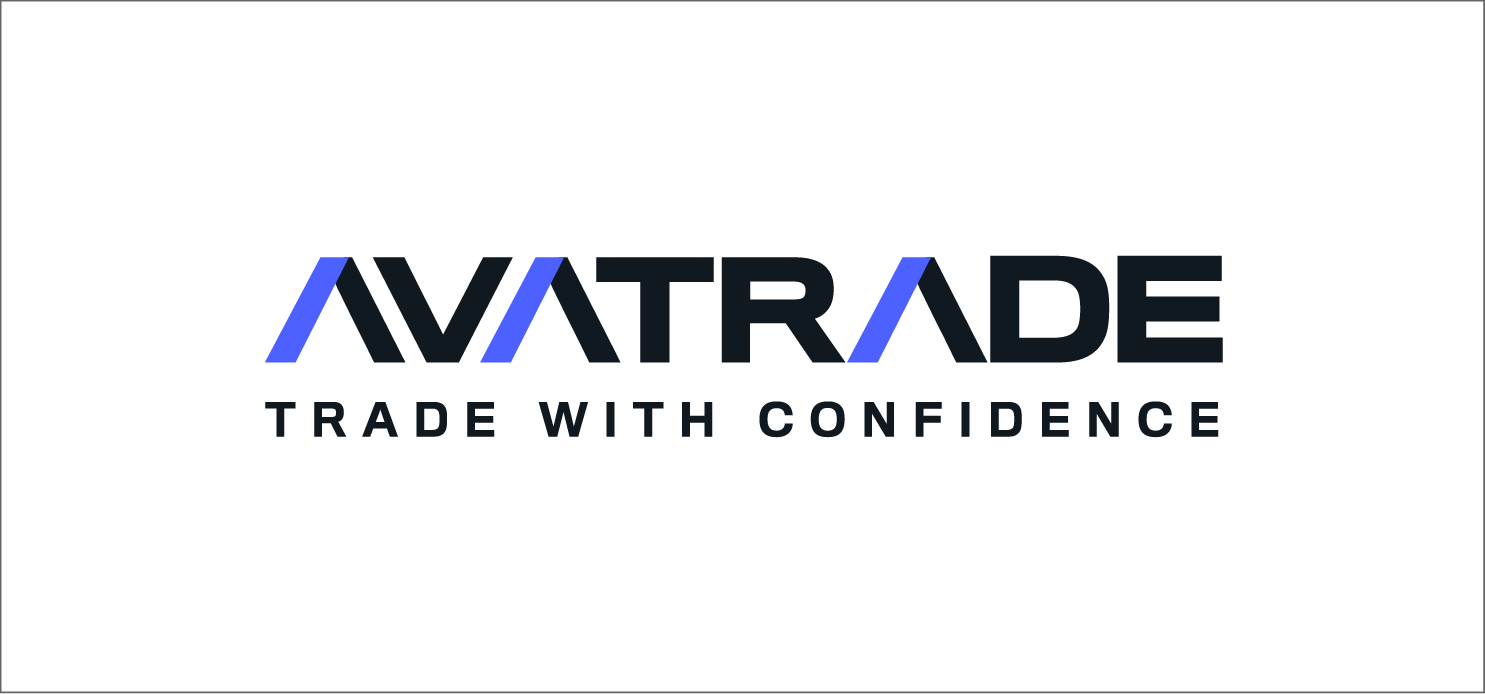Best 7 UK Bond Brokers (January 2025)
All products and services featured are independently selected by WikiJob. When you register or purchase through links on this page, we may earn a commission.
- A list of the Top UK Bond Brokers for January 2025 are:
- Comparison Chart of the Best UK Bond Brokers for January 2025:
- Description of the Best UK Bond Brokers for January 2025:
- Best Bond Brokers Courses for January 2025
empty
empty
empty
- What Are Bonds?
- What Are the Different Types of Bonds?
empty
empty
empty
empty
- Who Regulates Bond Brokers?
- Why Use a Bond Broker in 2025?
- Frequently Asked Questions
- Final Thoughts
A list of the Top UK Bond Brokers for January 2025 are:
Comparison Chart of the Best UK Bond Brokers for January 2025:
Bond Markets Limited | Trading Platforms AvaTradeGO | Features Diverse asset offerings, user-friendly interface | |||
Bond Markets Global | Trading Platforms IG Trading Platform | Features Wide range of markets, educational resources | |||
Broker Saxo | Bond Markets Global | Trading Platforms SaxoTraderGO, SaxoTraderPRO | Features Wide range of markets, comprehensive educational resources, advanced trading tools | ||
Broker ActivTrades | Bond Markets Global | Trading Platforms ActivTrader, MetaTrader | Features Strong customer service, multiple trading platforms | ||
Broker CMC Markets | Bond Markets Global | Trading Platforms Next Generation Platform | Features Advanced trading platform, research tools | ||
Broker Interactive Brokers | Bond Markets Global | Trading Platforms Trader Workstation | Features Access to global markets, advanced trading tools |
1. AvaTrade
Pros
- Worldwide regulated
- Multiple platforms – MT4, MT5, etc.
- 20% welcome bonus
- Educational content
- Wide rage of payments methods
- Fixed spreads
Cons
- You can’t buy stocks
- Quarterly and annual inactivity fees
- Custumer support is not available 24/7
- No bonus for EU based clients
- No US clients accepted
- Imitated crypto assets
AvaTrade is a CFD Regulated broker with +1,000 financial instruments and multiple trading platforms. It has been operating since 2006.
It offers a 20% welcome bonus up to $10,000, according to regulation and a free 21-day demo account with $100,000.
Instruments include:
- Metals
- Commodities
- Stocks
- FX Options
- Oil
- ETFs
- Options
- Crypto currencies
- CFDs
- Indexes
- Shares
- Spread betting
- Indices
- Forex
- Bonds
AVATrade EU Ltd is regulated by the Central Bank of Ireland. (No.C53877) Ava Trade Markets Ltd. is regulated by the B.V.I Financial Services Commission. It is also highly regulated in Australia, South Africa, Japan, Middle East, Cyprus and Israel
You can not trade with AvaTrade in the US, North Korea, New Zealand, Iran or Belgium.
Mínimum deposit of $100, no withdraw limit and no fees.
2. IG
Pros
- Highly regulated
- MetaTrader 4 (MT4)
- Over 10,000 instruments
- Available in the UK and US
- 24/7 customer support
Cons
- High fees
- No deposit compensation scheme for US accounts
- No copy trading
- Inactivity fees
IG invented spread betting in 1974 and today is the world’s leading online trading provider with more traders trusting them with their money than anyone else
IG is authorised and regulated by the FCA and provides traders access to over 18,000 markets. IG offers more 24-hour indices than any other provider, and extended hours on over 70 key US stocks
For those who prefer to own the underlying asset, IG offers access to over 13,000 global shares and ETFs, or a wealth portfolio managed by one of their experts.
Benefits:
- Advanced platform and charting – L2 dealer, ProRealTime and MT4
- Demo account
- Extended trading hours
- Extensive range of products
- Daily expert analysis & educational resources
- Round-the-clock customer service
- Negative balance protection for retail clients
*Based on revenue (published financial statements, October 2022). 24/7 excludes the hours from 10 pm Friday to 8 am Saturday (UK time), and 20 minutes just before the weekday market opens on Sunday night.
3. Saxo
Pros
- Heavily regulated
- Good product portfolio
- Low forex fees
- No withdrawal or inactivity fees
Cons
- Does not accept US clients
- High fees for options, futures and bonds
Saxo is highly regarded as one of the best UK bond brokers, offering an extensive and sophisticated platform for bond trading.
Saxo provides access to a wide range of bond markets, including government and corporate bonds from around the world. This global reach allows UK traders to diversify their portfolios beyond local markets, tapping into international opportunities.
Saxo's trading platforms, SaxoTraderGO and SaxoTraderPRO, offer robust tools designed for bond trading. These platforms provide detailed analytics, real-time quotes, and seamless execution. This functionality is ideal for both new and experienced bond traders who require in-depth information and efficient trading mechanisms.
Saxo offers competitive pricing on bond trading, which is crucial for maximizing returns, especially in the fixed income market where margins can be tight. The transparent fee structure helps traders understand their costs upfront.
Saxo supports traders with a wealth of educational materials specifically geared towards bond trading. This includes tutorials, guides, and webinars that cover various aspects of bond markets and trading strategies. These resources are invaluable for both beginners looking to learn the basics and seasoned traders aiming to refine their strategies.
As a fully regulated broker, Saxo provides a secure and trustworthy environment for trading bonds. UK traders can feel confident in the integrity and stability of their investments, knowing that Saxo adheres to strict regulatory standards.
Saxo offers dedicated customer support, ensuring that traders can get timely assistance with any queries or issues that might arise. This support extends to all aspects of the trading experience, from account setup and platform assistance to specific inquiries about bond investments.
4. ActivTrades
Pros
- No minimum first-time deposit
- Optimal trading execution
- More than 1,000 CFDs
- State-of-the-art trading infrastructure
- Customer support on 14 languages via email, chat and telephone
Cons
- No copy trading
- Not available for US clients
- No bonus for EU based clients
ActivTrades is a traditional CFD broker and has been trading for more than 20 years on 140 markets. ActivTrades is authorized and regulated by the FCA, CSSF and SCB.
Its strong points include:
- No minimum first-time deposit
- No commissions
- Several payment methods for deposits and withdrawals
- Tight spreads from 0.5 pips
It offers one of the best execution speeds in the industry with low latency below 0.004s.
It utilizes the most advanced technology to improve users' trading efficiency – users can automate trades, build integrations and create trading apps using ActivTrades' market-leading CFD and spread betting technology.
Exceptional trading infrastructure is available on ActivTrader and MetaTrader 4 and 5.
ActivTrades invests deeply in specially developed educational materials for its clients – including webinars, regular outlooks, manuals, etc.
Type of offers: ActivTrades focuses on well-developed products in its trading portfolio. Customers can choose from over 1,000 CFD or spread betting instruments across forex, indices, shares, commodities, financials and ETFs.
It also offers investing solutions for its institutional partners.
Spread betting allows UK residents ONLY to trade the prices of financial instruments, including forex, indices, commodities and LSE shares.
5. CMC Markets
Pros
- No minimum deposit
- Wide range of trading instruments
- Low forex fees
- High level of regulation, both UK and globally
- Extensive range of trading tools
- Mobile app for trading on the go
Cons
- High CFD fees on shares and ETFs
- Can only trade with CFDs or spread betting
- Does not lead to ownership of trading assets
Fees: Vary but average about 0.1% commission
CMC Markets was founded in 1989 and is a UK-based broker that is publicly traded.
CMC Markets offers a comprehensive government bond listing and is good for beginner investors.
The CMC ‘Next Generation’ trading platform is modern, easy to use and available on multiple platforms including smartphones.
6. Interactive Brokers
Pros
- Regulated
- Wide range of offerings
- Low commission
- Socially responsible
- 24/5 customer support across multiple channels
Cons
- No additional platforms
- Inactivity fees
Fees: 0.01% commission with a minimum of £1.
Interactive Brokers was founded in America in 1978, and the trading technology that is used to provide financial services is simple to use. It is available on computer and smart phones.
Best Bond Brokers Courses for January 2025
1. The Trader – Financial Edge
Price: £174.17
Duration: 14 hours
Financial Edge is the firm trusted by the world’s top 4 Investment Banks (as rated by the FT) to train their new analysts. Founded by ex-bankers and a team of experienced instructors, they deliver technical training programs in-house and online through their range of Wall Street-recognized certified courses.
2. Stocks and Bonds – Coursera
Price: Free
Duration: Approximately 9 hours
Stocks and bonds are both investment options that allow individuals to earn a return on their money. Stocks represent ownership in a company and provide the potential for high returns, but also come with a higher level of risk. Bonds, on the other hand, represent a loan to a company or government and provide a fixed return with lower risk. The University of Michigan offers a course on stocks and bonds through Coursera, providing individuals with a comprehensive understanding of these investment options and how to best utilize them in their portfolios. You will gain skills in pricing stocks, trading in financial markets, and pricing bonds.
3. Capital Markets & Securities Analyst (CMSA) – CFI
Price: $497 per year for self-study, $847 per year for full-immersion
Duration: 60-100 hours
Capital Markets & Securities Analyst (CMSA) is a professional certification program designed by the Corporate Finance Institute (CFI) to equip individuals with the necessary skills and knowledge to excel in the field of capital markets and securities analysis. The program covers a wide range of topics, including financial modeling, valuation, trading strategies, and risk management, among others. By completing the CMSA program, individuals can enhance their career prospects and demonstrate their expertise in the field. The program is available online and can be accessed from anywhere in the world.
Capital Markets & Securities Analyst (CMSA) – CFI

What Are Bonds?
A bond is a loan offered by a government, business or other organisations where investors can make a fixed investment and get a predictable return over a specified period.
The bond is for a specific duration and the investors earn an income from interest (known as the coupon).
Bonds are a popular method of investing for income rather than capital growth for stability and known income in a portfolio, allowing investors to match future returns to future liabilities. Coupons can be variable or fixed rate, so income comes throughout the period of the bond – which could potentially be 30–50 years.
Bonds have a nominal rate of £100 (UK) or $1,000 (US), but these prices can fluctuate when it first comes to the market and throughout the term, although those with short durations are less likely to change over time.
Prices fluctuate because of supply and demand, the credit rating of the company issuing the bond, the coupon rate and how close it is to the end of the term.
The nominal rate is described as the ‘par value’ and is the face value of the bond.
Although bonds are seen as less risky investments than equities because they offer predictable income and returns, negative interest rates can influence the return, causing investors to take on more risk.
What Are the Different Types of Bonds?
There are several types of bonds available, each with different risk profiles and possible returns.
Bonds are rated based on risk and credit ratings by institutions like Moody’s and Standard and Poor’s to ascertain the financial stability of the entity – and therefore determine the likelihood of bonds being repaid and the interest rates being met.
Bonds are rated on an alphabetic scale, with the top rating being AAA and riskier bonds at a C or below.
Government Bonds
Often referred to as Gilts in the UK, government bonds are issued by government agencies and national treasuries.
They are considered low risk as it is more likely that the coupon and the return are likely to be paid and the conditions of the bond will be met.
A supranational bond has a similar risk profile but tends to be issued from banks.
Corporate Bonds
In general, corporate bonds are a relatively safe fixed income investment. Investment-grade corporate bonds are the most common, issued by companies with a high credit standing.
Corporate bonds tend to offer a higher coupon threshold than government bonds so offer more income.
Junk Bonds
Junk bonds are essentially corporate bonds from companies with a lower credit rating. They are considered much higher risk but offer a greater return if the risk pays off.
Junk bonds are often offered by companies that are going through some kind of financial struggle and need an injection of cash.
Savings Bonds
Savings bonds are offered by banks and building societies and are popular with retail investors, especially those with little experience of investing.
With low prices for investing and relatively low risk, savings bonds can fluctuate quickly but the maturity terms are often lengthy.
Who Regulates Bond Brokers?
Bond brokers in the UK are regulated by the Financial Conduct Authority (FCA). Other bond brokers in other countries that trade in the UK should be regulated in their own countries as well as the FCA.
Look for regulation agencies like CySEC and ASIC for further confirmation that the broker will be held accountable if there are any problems.
Why Use a Bond Broker in 2025?
Investing in bonds as a retail investor can be difficult without a brokerage. Bond brokers specialise in bonds and other fixed-income securities, allowing private clients to invest and trade in bonds.
Bonds can be issued in very large denominations, sometimes in the billions, so investing directly needs considerable capital. A bond brokerage can get clients exposure to the bond markets with smaller capital amounts.
Bond brokers can offer investment into bonds as well as trading with bond ETFs, acting as intermediaries and, in some cases, providing research and education.
Bond brokers tend to charge either a commission or a fixed fee for trading.
Frequently Asked Questions
Freetrade is a great trading platform for anyone who wants to invest with low fees. It has 0% commission on all its trades, and it is very easy to navigate.
With Freetrade you can invest in a huge selection of international shares, and some of these include US-based bonds. You can also invest in exchange-traded funds (ETFs) and investment trusts.
Be aware that some of the more premium features of Freetrade are hidden behind a paywall.
If you are looking at investing small amounts of money then Orca is also a good trading platform. With Orca you can invest in both UK and US bonds and shares. It only functions as a mobile app and prioritizes UK stocks over internationally-based stocks.
To buy cryptocurrency in the UK, choose a reputable exchange like Binance, Kraken, or Gemini. Create an account, verify your identity, deposit funds via bank transfer or credit card, and then purchase your desired cryptocurrency through the platform's trading interface.
Doing your research into online brokerages will give you the best information on which trading platforms allow you to invest in bonds.
Reading the right news materials will also give you information on the best bond brokers.
Bloomberg.com and Morningstar.com are great resources that will give up-to-date information on bond brokers. Other educational resources on YouTube and online will also give you the best information on reliable bond brokers.
Bonds have much different maturity rates, qualities and yields than stocks or shares. Because of this, they are mostly traded in something known as the secondary market.
The secondary market is where investors and traders trade securities they already own. They do not speculate on the trades and stocks that may be offered elsewhere.
Investors often consider buying or selling bonds after the trade of shares or stocks. Bond trading is usually done over the counter, and this usually requires some form of arrangement between the broker and investor.
There are a few ways in which you can government bonds in the UK. First, you can do this directly through HM Debt Management or an authorized agent. They will advertise the bonds that are available for purchase and the quality of the bond.
You can also buy bonds via shares in a bond exchange-traded fund (ETF).
Finally, you can trade government bonds on a market. To do this you must spread bet or arrange a CFD with the seller.
You do not need a broker to buy bonds if you do it through an HM debt management or an authorized agent. However, bonds and securities are becoming a more popular form of exchange, especially within the market.
Many brokers now allow you to purchase bonds online. It may be difficult to locate a broker that specifies in bond, but it is possible to buy bonds through a broker.
Brokers like CMC markets list government bonds that you can purchase.
Freetrade is a highly rated broker where traders can easily search up stocks they want to invest in.
You do not need a minimum deposit to set up an account on Freetrade and all the clients accepted are UK-based.
It is a great platform to test out stockbroking for little financial risk.
If you are looking at a stock broker that operates on the global market, then Trading212 is a popular choice for beginners.
Trading212 requires no deposit.
Final Thoughts
Bonds make a mostly reliable investment that offers an income as well as a return at the end of the term.
When considering bonds, decisions should be made depending on the credit rating of the entity issuing them. The higher the rating, the less risk in investing – although returns might not be as high.
The highest credit ratings tend to be in Gilts (government bonds) and supranational bonds as well as savings bonds, but corporate bonds offer higher coupon rates. Junk bonds are riskier but often have higher returns if they are completed.
Bonds will have a coupon (interest) rate and a maturity date. This describes the monthly income from the bond as well as the duration of the loan – and when the repayment of the amount will occur. The par value will be the repayment value at the end of the term.
Choosing the right bond broker for your investments is a personal choice, but there are certain things that are important. A well-regulated broker means that your investment will be safer, and while lower fees might be a draw getting support and education alongside research and commentary is useful if you want to understand how best to invest.
WikiJob does not provide tax, investment, or financial services and advice. The information is being presented without consideration of the investment objectives, risk tolerance, or financial circumstances of any specific investor and might not be suitable for all investors. Past performance is not indicative of future results. Investing involves risk including the possible loss of principal capital.










